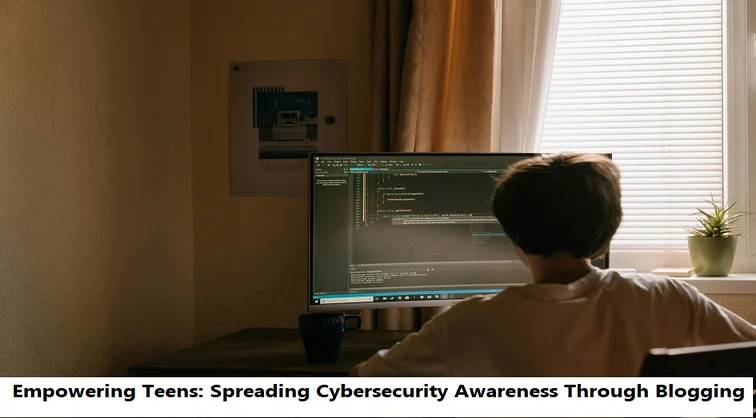+1 845 259 2974 (11 a.m to 7 p.m CST)
Guiding Your Teen Towards Safe Online Gaming: 6 Essential Tips

With online gaming becoming a staple in the lives of teens, it’s increasingly important for parents to guide their children in developing safe gaming habits. The allure of the virtual world is undeniable. It offers teens an escape to fantastical realms, the thrill of competition, and the joy of socializing with friends. However, it is not without its pitfalls. From cyberbullying to online predators, the risks are real, making it crucial for parents to step in with support.
When it comes to teaching teens about safe online gaming, the approach should be about conversation and understanding. Your role as a parent is to provide them with information and guide them to reliable resources. Students might even want to explore the topic with a psychology essay writer to find out more about the risks of gaming and safe practices. It’s a common school assignment, and the academic expert can help them access to research and evidence-based solutions. Read on to find six more tips to ensure your teen enjoys gaming in a safe and responsible manner.
1. Establish Open Communication
Start by showing interest in the games your teen plays. Ask them about their favorite aspects of gaming, the friends they make, and the challenges they face. This helps you understand their online world and opens a channel for ongoing conversations about their experiences. When your teen feels heard, they’re more likely to share and listen.
You can also discuss the potential risks but don’t sound alarming. Share stories about online scams or cyberbullying incidents, emphasizing how being aware and cautious is essential. This approach helps your teen recognize potential dangers without feeling like their online adventures are overly restricted.
2. Set Ground Rules
Establish clear gaming guidelines with your teen:
- Set reasonable limits on gaming time to ensure it doesn’t interfere with sleep, homework, and family time.
- Explain the use of privacy settings in games and on gaming platforms.
- Encourage them to only add known friends to their gaming circles.
- Discuss the importance of seeking permission before making any in-game purchases.
- Reinforce the rule of never sharing personal information.
- Teach them how to address bullying within online gaming environments.
- Encourage regular breaks to reflect on their gaming experience and mood.
After listing these guidelines, explain the importance of each point. For instance, discussing the impact of excessive screen time on health and sleep can make your teen more receptive to time limits. Similarly, explaining the dangers of sharing personal information can promote a sense of accountability for their digital footprint.
3. Promote Positive Online Interactions
Online gaming isn’t just about playing; it’s a social platform where interactions can shape your teen’s experience. Encourage your teen to be a positive force in their gaming community. This includes showing respect to other players, avoiding toxic language, and understanding the impact of their words and actions online.
It’s also beneficial to discuss how to deal with negative interactions. Equip your teen with strategies to handle conflicts, such as taking a step back, not engaging in arguments, or seeking help from game moderators.
4. Understand the Game Content
Not all games are suitable for all ages. Research the content and ratings of the games your teen is interested in. Games rated for mature audiences might contain themes that aren’t appropriate for younger teens. Use resources like the Entertainment Software Rating Board (ESRB) to check game ratings and content descriptions.
Discuss the reasons behind age restrictions and content warnings with your teen. This isn’t about imposing strict bans but about helping them choose appropriate games for their age and maturity level. When teens understand the ’why’ behind these decisions, they are more willing to follow them.
5. Encourage a Balanced Lifestyle
Here are five basic components of a well-rounded lifestyle:
- Physical Activity: Promote regular exercise to balance the passive character of gaming.
- Hobbies and Interests: Encourage other hobbies and interests outside of gaming.
- Family Time: Designate tech-free times for family activities.
- Social Interactions: Encourage in-person social meetings.
- Rest and Sleep: Ensure they have a regular sleep schedule unaffected by late-night gaming.
Explain to your teen how each aspect contributes to their mind and body health.
6. Monitor and Adjust
Stay involved in your teen’s gaming life, but avoid micromanaging. Regular check-ins about their gaming experiences can be beneficial. Watch for changes in behavior, sleep patterns, or academic performance, as these could be signs of problematic gaming habits. If you notice such changes, have a conversation with your teen to understand the cause and adjust the rules accordingly. The goal is to guide, not control. As your teen grows and matures, their ability to make responsible choices will improve.
Final Thoughts
In guiding your teen through online gaming, remember that the journey is as much about learning and adapting for you as it is for them. As a parent, your role is to be the support system that helps them balance the excitement of the digital world with the responsibilities of everyday life. This may involve finding a reliable academic helper from the best paper writing service to help them stay on top of their studies and offering guidance on online safety. By taking an active interest in your teen’s online activities, setting clear guidelines, and encouraging a balanced lifestyle, you’re not just helping them stay safe online; you’re also helping them develop into well-rounded, responsible individuals.

















